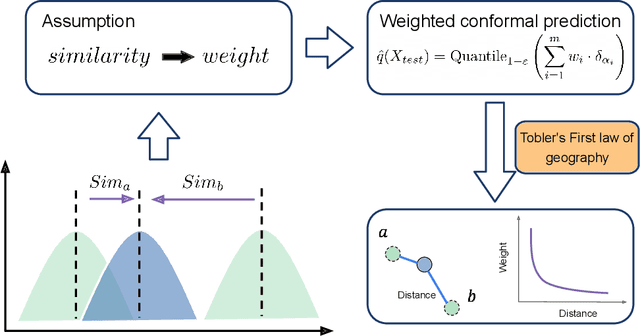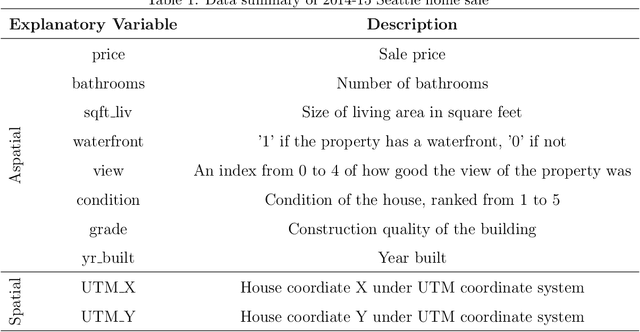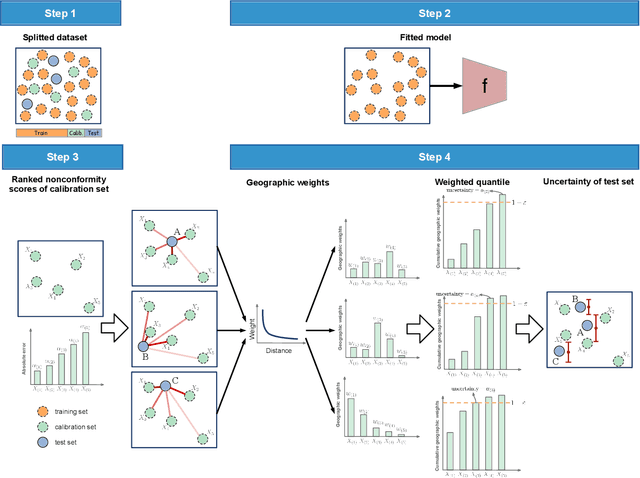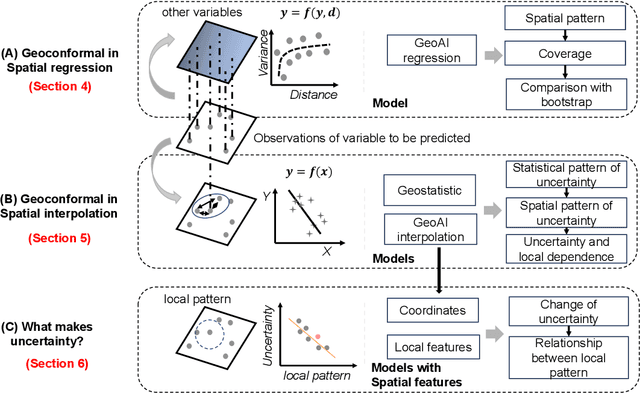Xiayin Lou
GeoConformal prediction: a model-agnostic framework of measuring the uncertainty of spatial prediction
Dec 05, 2024



Abstract:Spatial prediction is a fundamental task in geography. In recent years, with advances in geospatial artificial intelligence (GeoAI), numerous models have been developed to improve the accuracy of geographic variable predictions. Beyond achieving higher accuracy, it is equally important to obtain predictions with uncertainty measures to enhance model credibility and support responsible spatial prediction. Although geostatistic methods like Kriging offer some level of uncertainty assessment, such as Kriging variance, these measurements are not always accurate and lack general applicability to other spatial models. To address this issue, we propose a model-agnostic uncertainty assessment method called GeoConformal Prediction, which incorporates geographical weighting into conformal prediction. We applied it to two classic spatial prediction cases, spatial regression and spatial interpolation, to evaluate its reliability. First, in the spatial regression case, we used XGBoost to predict housing prices, followed by GeoConformal to calculate uncertainty. Our results show that GeoConformal achieved a coverage rate of 93.67%, while Bootstrap methods only reached a maximum coverage of 68.33% after 2000 runs. Next, we applied GeoConformal to spatial interpolation models. We found that the uncertainty obtained from GeoConformal aligned closely with the variance in Kriging. Finally, using GeoConformal, we analyzed the sources of uncertainty in spatial prediction. We found that explicitly including local features in AI models can significantly reduce prediction uncertainty, especially in areas with strong local dependence. Our findings suggest that GeoConformal holds potential not only for geographic knowledge discovery but also for guiding the design of future GeoAI models, paving the way for more reliable and interpretable spatial prediction frameworks.
 Add to Chrome
Add to Chrome Add to Firefox
Add to Firefox Add to Edge
Add to Edge